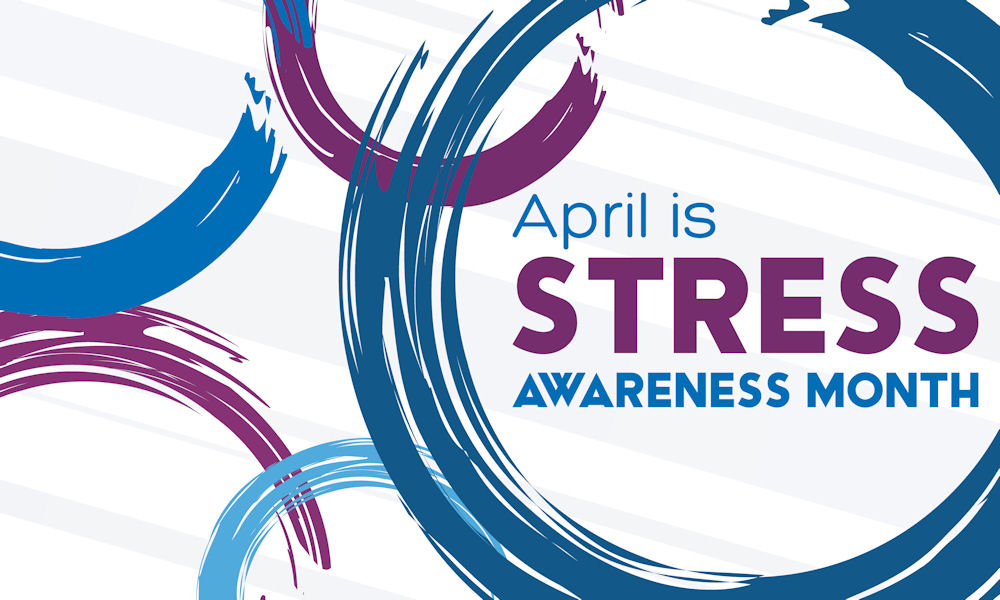April is known as Stress Awareness Month, a time dedicated to understanding and addressing the impact of stress. Stress can have a major impact on our daily lives and can lead to harmful behaviors, such as addiction. In the state of Idaho, there is an urgent need to address both stress and addiction treatment.
Don’t wait to seek professional help if you are struggling with a substance abuse or mental health condition. Learn how our substance abuse treatment programs in Idaho can help.
What is Stress?

While some levels of stress are natural and unavoidable in life, it’s important to recognize when it becomes overwhelming and take steps towards managing it effectively for a healthier mind and body.
How Does Stress Impact Health?
Stress can have a significant impact on an individual’s overall health and well-being. It can affect both physical and mental health, causing a range of symptoms such as headaches, fatigue, irritability, and sleep disturbances. However, research suggests that men and women may experience stress differently.
In general, it is believed that men tend to experience more external stressors related to work or financial pressures, while women may experience more internal stressors related to family or relationship issues. This is not to say that these gender-specific stressors are exclusive to one gender; rather, they may be more prevalent for certain groups due to societal expectations and cultural norms.
It is also worth noting that societal norms often discourage men from expressing their emotions or seeking help for mental health issues, which can contribute to higher levels of stress and addiction if left unaddressed. You can seek help without judgement at our residential treatment program in Idaho.
Types of Stress
There are two main types of stress that individuals may experience:
- Acute Stress: This is the most common type of stress and is usually caused by a sudden event or situation. It can be triggered by something as simple as getting stuck in traffic or as significant as a traumatic event. Acute stress typically lasts for a short period and can quickly dissipate once the cause is removed.
- Chronic Stress: Unlike acute stress, chronic stress is ongoing and can last for weeks, months, or even years. It is often caused by long-term problems such as financial difficulties, relationship issues, or work-related stress. Chronic stress can have a serious impact on one’s physical and mental well-being if left unmanaged.
Acute stress in small doses can be beneficial as it helps us perform better under pressure and motivates us to take action when needed. However, when left unmanaged, it can have detrimental effects on our overall well-being.
What Are the Effects of Stress?
Stress can significantly impact our bodies, both physically and mentally. One of the most notable effects of stress is the increase in cortisol levels.
Cortisol is a hormone that is released by the adrenal glands in response to stress. It plays a crucial role in regulating various bodily functions, such as metabolism, immune response, and blood pressure. When we experience stress, our bodies perceive it as a threat and release cortisol to help us cope with the situation.
However, using substances, particularly alcohol can lead to consistently high levels of cortisol in our bodies. Alcohol and cortisol can have detrimental effects on our health, including:
- Impaired Immune System: High levels of cortisol can suppress the immune system, making us more susceptible to illnesses and infections.
- Weight Gain: Cortisol stimulates the production of glucose, which provides us with energy during stressful situations. But when this energy is not used up by physical activity, it gets stored as fat, leading to weight gain.
- Digestive Issues: Cortisol can also affect digestion by reducing blood flow to the digestive tract and altering gut bacteria, leading to issues like stomach pain, bloating, and diarrhea.
- Sleep Problems: Stress-induced high cortisol levels can disrupt our sleep patterns and make it difficult for us to fall asleep or stay asleep.
- Mood Disorders: Cortisol can also affect neurotransmitters in the brain responsible for regulating mood. High levels of cortisol have been linked to anxiety, depression, and irritability.
It’s important to actively work to relieve stress and lower cortisol levels for overall health. Some alternative treatments like acupuncture are said to actively help in lowering cortisol. But no matter how you decide to treat it, it’s important to not let stress and addiction control your life.
Stress and Addiction: What’s the Connection?
Stress and addiction have a complicated relationship, with one often leading to the other. While stress itself is not a direct cause of addiction, it can be a contributing factor. Chronic stress can lead to negative coping mechanisms, such as substance abuse or compulsive behaviors, that can develop into addiction.
One reason for this connection is that when individuals are stressed, they often seek ways to relieve their discomfort and feel better. This can include turning to substances like drugs or alcohol, which provide temporary relief from stress but ultimately worsen it in the long run.
Stress also affects the brain’s reward system, making individuals more susceptible to addictive behaviors. When under stress, the brain releases hormones like cortisol and adrenaline, which increase feelings of pleasure and motivation. This response can create a powerful reinforcement loop that leads individuals to seek out activities or substances that trigger this response.
How Does Substance Use Affect Stress?
Substance use can have a significant impact on an individual’s stress levels. In the short term, substances such as alcohol and drugs may provide a temporary escape from stressors or negative emotions. However, in the long term, substance use can lead to anxiety and addiction.
One reason for this is that substance use can disrupt the body’s natural stress response system. Drugs and alcohol can alter brain chemistry and interfere with the production of hormones like cortisol and adrenaline, which are responsible for regulating stress levels. This disruption can lead to increased feelings of anxiety, irritability, and agitation.
Additionally, substance use can also lead to problems with relationships, work performance, and financial stability – all of which are common sources of stress. Substance abuse can strain relationships with loved ones, cause difficulties at work or school, and create financial hardships. These challenges can then contribute to even more stress and perpetuate a cycle of substance use as a coping mechanism.
Treating Co-Occurring Disorders

Psychotherapy is a crucial aspect of treating co-occurring disorders. This type of therapy involves talking to a trained therapist about one’s thoughts, feelings, and behaviors. Different forms of therapy such as cognitive-behavioral therapy (CBT), dialectical behavior therapy (DBT), and trauma-focused therapy are effective in treating co-occurring disorders.
Medication management is an essential part of treating co-occurring disorders, particularly for individuals with severe mental health conditions such as bipolar disorder or schizophrenia. Medications can help stabilize mood and manage symptoms while individuals work on their recovery journey.
Support groups also play a significant role in treating co-occurring disorders. These groups can provide individuals with a sense of community and understanding as they navigate their recovery journey. Support groups can also offer practical advice on managing triggers or cravings and provide a safe space for individuals to share their experiences without judgment.
Healthy Ways to Help Manage Stress
- Practice deep breathing: Deep breathing exercises can help calm the mind and relax the body. Take slow, deep breaths in through your nose and out through your mouth for several minutes.
- Engage in regular physical activity: Exercise is a great way to reduce stress and boost mood. Find an activity that you enjoy such as walking, running, dancing, or yoga, and make it a regular part of your routine.
- Prioritize self-care: Taking care of yourself is crucial in managing stress. This can include getting enough sleep, eating nutritious meals, and making time for activities that bring you joy and relaxation.
- Practice mindfulness: Mindfulness involves being present in the moment and paying attention to thoughts, feelings, and sensations without judgment. Cognitive behavioral therapy (CBT) can help reduce stress levels and promote overall well-being.
- Connect with others: Talking to a trusted friend or family member can help relieve stress by providing support and perspective. Joining a support group or engaging in social activities can also be beneficial for managing stress.
Remember that everyone copes with stress and addiction differently, so it’s important to find what works best for you individually. Incorporating healthy ways of managing stress into your daily routine can lead to increased resilience and overall well-being.
Why is Stress Awareness Month So Important?
One of the main reasons why Stress Awareness Month is crucial is because stress has become a prevalent issue in modern society. With the fast-paced nature of our lives, constant connectivity, and increasing demands at work and home, many people are experiencing chronic stress. This can lead to various health problems such as anxiety, depression, heart disease, and a weakened immune system.
By raising awareness about stress during this designated month, individuals can learn more about its causes and effects and how to effectively manage it. People can also share their experiences with others, reducing the stigma around discussing mental health issues.
Combat Stress and Addiction at Eagle Creek Ranch Recovery
Stress and addiction often go hand in hand, and can have a devastating impact on individuals and their families. At Eagle Creek Ranch Recovery, we are dedicated to helping individuals combat stress and addiction so they can thrive in all aspects of their lives.
Contact us today to learn more about our treatment approach and how we can help you or your loved one on the journey to recovery.

Clinical Director
Kendall Maloof is the clinical director at Eagle Creek Ranch Recovery. She is a licensed marriage and family therapist and has held multiple leadership roles before settling here at Eagle Creek. Kendall received her master’s degree in marriage and family therapy from the Chicago School of Professional Psychology in 2016. Her career in mental and behavioral health began in 2014 when she took up internships in both the nonprofit and for profit sectors. She interned at multiple reputable companies, such as The Living Success Center and 449 Recovery in California.
In 2019, Kendall became the clinical director of Sunsets Recovery for Woman, a dual diagnosis program in southern California. Kendall is a natural leader. She has an incredible ability to problem solve and stay calm in any situation. Kendall never fails to show up when she is needed, and her calm demeanor makes her team and clients feel at ease. Eagle Creek Ranch Recovery is proud to have Kendall as our clinical director.



